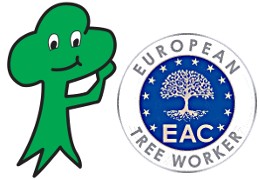It was initially reported that women are less likely to engage in binge drinking patterns than men (Bobrova et al., 2010). However, in the recent years, data from the United States indicate that the binge-drinking rate in adult women (age 21–49 years) has been rising (Hasin et al., 2019; Sarah and Keyes, 2020). Evidence suggests that there is a little convergence in the pattern of binge drinking in men and women. It was found that the prevalence was higher for females than males from 2000 to 2010 for any binge drinking in the preceding month.
- It can have a major impact on their family members’ quality of life and even be a detriment to the healthy development of any children they have.
- The outcomes of alcohol and anger can be hazardous, causing traumatizing situations for the inebriated person and the people around them.
- Based on the content of treatment protocols, anger regulation material comprised approximately 0.4% of the AAF condition and 64.2% of the AM condition.
- Additionally, it’s common for people to self-medicate with alcohol, thinking that drinking will numb those feelings or allow them to forget – if only for one evening.
Consistent with prior literature, participants were found to be more likely to perpetrate psychological and physical IPA on days during which they themselves had consumed alcohol. A marginal partner effect emerged indicating that partner alcohol use increased the risk of participant psychological aggression on the same day. No partner effects were detected in predicting participant physical aggression. Both treatments were delivered by female, masters-level social workers in accordance with treatment manuals for each condition; both therapists delivered both treatment protocols.
Low Regard for Consequences
The difference is using anger in this way is a ‘skill’ that people develop over decades of practice. If this form of anger goes unaddressed, it can be detrimental to your mental health and your relationships. Combined with alcoholism, it can be very alcoholic rage syndrome dangerous to your physical health as well. One allows you to escape from your other emotions, while the other allows you to escape further into anger. In a phrase, anger and alcohol abuse can feed off of each other if they both go unchecked.
Clients can learn healthy stress management and coping skills to diffuse anger and other negative thoughts in group and individual therapy sessions. Emotional regulation skills and relapse prevention tools are also taught. Through behavioral therapy https://ecosoberhouse.com/ and counseling, a person is better able to recognize how their thoughts tie into their actions. They can learn to recognize potential triggers and how to safely manage them. This aggressive behavior may result in other issues, such as verbal abuse.
Personality and the Propensity to Become Aggressive When Intoxicated
Suddenly, the person they know and care for is a much different, angrier person — short-tempered, abusive and often violent. An earlier study found that alcohol use enhanced aggression primarily among individuals who showed a heightened disposition for such behavior (Eckhardt and Crane, 2008). They were directed to engage in a task with the potential to trigger aggressive verbalizations, with those who consumed alcohol showing significantly more such behavior.
- Mood stabilizers, antidepressants, or anti-anxiety medications can all help to regulate and control negative emotions, during both detox and treatment for anger management and alcohol addiction.
- Even if you don’t find drinking makes you aggressive, you might find drinking sometimes leads to an argument.
- As will be reviewed below, existing literature reveals mixed multi-method support for partner and interactive effects of alcohol use on relationship IPA across survey, event-based, longitudinal, experimental, and treatment-evaluation studies.


Schreibe einen Kommentar